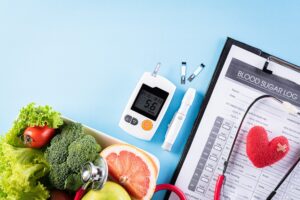Cardiologist in Nagpur

CARDIOLOGY & HYPERTENSION
Overview
Hypertension, also known simply as “high blood pressure” is very rampant. However, it can lead to many substantial difficulties if not treated on time. When the blood pressure is high, the force the blood puts on the walls of the arteries is also very high, and this can lead to significant artery damage.
The blood flowing through your arteries thrusts against the arterial walls; this force is measured as blood pressure. High blood pressure (hypertension) occurs when the very small arteries (arterioles) stiffen. Your heart has to work harder to pump blood through the smaller space, and the pressure inside the vessels propagates. The constant excess pressure on the artery walls weakens them, making them more vulnerable to atherosclerosis.
Hypertension progresses slowly over time, and often does not cause any symptoms until something severe happens, such as a heart attack, stroke, or heart failure. Luckily, hypertension can be effortlessly detected and treated to avoid this from happening.
How we manage Hypertension?
- We review your medical history, conduct a physical exam, and run lab tests.
- Evaluations for Cardiac Arrhythmias, rheumatic heart disease, heart failure, peripheral artery disease are done.
- Our in-house experts sit down and explain the inferences to the patient.
- An easy-to-follow and effective exercise regime and diet chart is decided.
- We suggest ultrasound and sonography and cardiac health checkup, if needed.
- Our experts follow-up with you religiously.
Our objective is to construct a broad and all-inclusive specialized treatment for every patient to improve their health and well-being.
SYMPTOMS
You may experience no symptoms, or your symptoms may include:
- Chest pain (angina)
- Tightness or pressure in the chest
- Shortness of breath
- Weakness and exhaustion
- Soreness in the neck, back, arms, or shoulders
- Persistent cough
- Loss of appetite
- Leg or ankle inflammation
DIAGNOSIS AND TREATMENT
Hypertension is detected by basically measuring the blood pressure with a blood pressure cuff.
Mentioned below are the ranges of normal and abnormal blood pressure. The top number is called the “systolic blood pressure” and measures the pressure when your heart pumps; the bottom is called the “diastolic blood pressure” and measures pressure when your heart relaxes.
- Normal: < 120/80
- Pre-hypertension: Between 120-139 for the systolic pressure, and 80-89 diastolic (120/80 to 139/89)
- Hypertension:
- 140/90 if age < 60, or diabetic, or if kidney disease exists
- 150/90 if age < 60 and no diabetes or kidney disease
Some other tests include-
- Ambulatory monitoring
- Electrocardiogram (ECG or EKG)
- Echocardiogram
TREATMENT –
Altering your way of life can help control and manage high blood pressure. Your doctor may endorse that you make several lifestyle changes, such as:
- Consuming a heart-healthy diet with less salt
- Regular physical activity
- Maintaining a healthy weight, or losing weight if you’re overweight or obese
- Restricting the amount of alcohol intake
If diet and exercise don’t help, your doctor may recommend additional medications to lower your blood pressure.
Medications used to treat high blood pressure include:
- Diuretics
- Angiotensin-converting enzyme (ACE) inhibitor
- Angiotensin II receptor blockers (ARBs)
- Calcium channel blockers vessels
Some further medications sometimes used to treat high blood pressure are:
- Alpha blockers
- Alpha-beta blockers
- Beta blockers
- Aldosterone antagonists
- Renin inhibitors
- Vasodilators
- Central-acting agents
PREVENTION –
Lifestyle modifications can help you regulate and inhibit high blood pressure. Here’s what you can do:
- Eat a heart-healthy diet – Stick to the Dietary Approaches to Stop Hypertension (DASH) diet, which includes fruits, vegetables, whole grains, poultry, fish and low-fat dairy foods. Keep the consumption of saturated fat and trans fat to the minimum.
- Reduce the intake of salt in your diet – Limit sodium intake to less than 2,300 milligrams (mg) a day or less. However, a lower sodium intake — 1,500 mg a day or less — is ideal for most adults. Also pay attention to the amount of salt that’s in the processed foods you eat, such as packaged foods.
- Indulge in regular physical activity – Religious physical activity can help lower your blood pressure, manage stress, keep your weight under control and reduce your risk of many health conditions.
